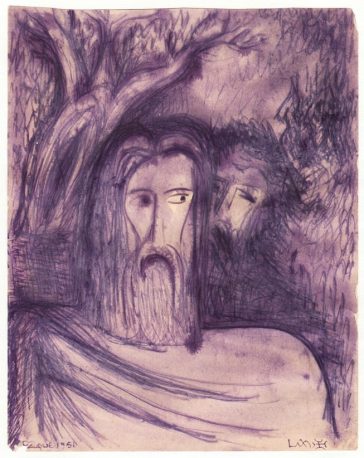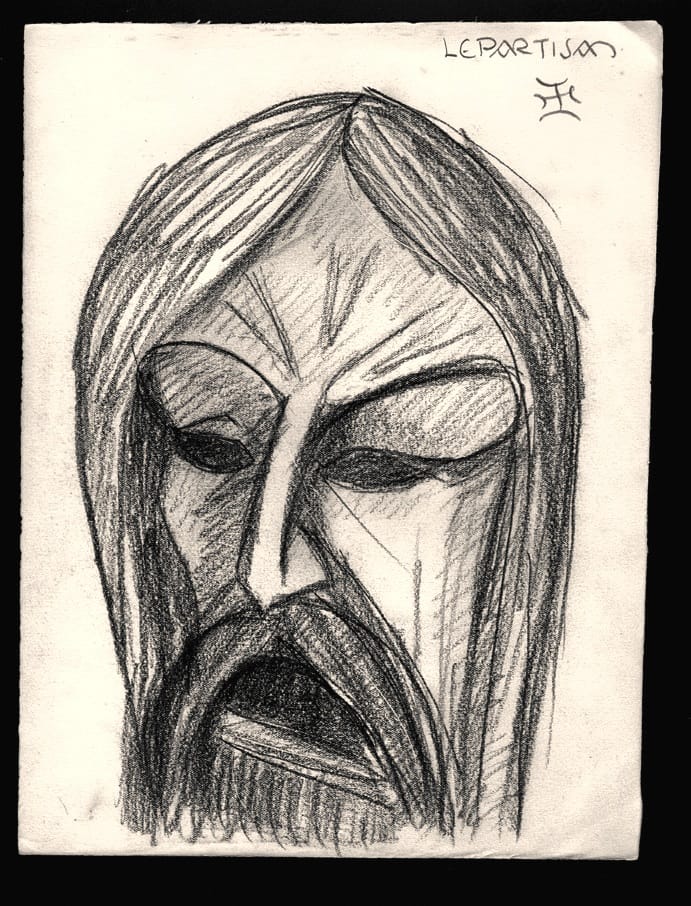An exploration of the human soul into its darkest side, but without falling into neither cynicism nor moralism. Because the traitor (Judas) or the murderer (Gilles de Rais), while being considered evil, reflect each of us.

Even more than theater, Lanza del Vasto’s story is a literary genre which is likely to explore difficult, even devious aspects of human condition. The two main stories of this kind are actually Judas (1938) and Gilles de Rais (2001), quite dark characters, haunted by evil.
But the author does not fall into a moral dualism which would reject those characters as being purely evil. In a very subtle way, Lanza manages to have them loved by the reader, bringing him to identify himself in them. “Judas is me”, he writes in the book’s preface, meaning that this traitor is within each of us.
Then, the story has for its antihero a paradoxical kindness, due to a mirror effect. If the traitor is me, at least a potential one, I can’t hate him completely. I have to understand where evil crept into him and so could creep into me. I also have to understand that evil is not the pure antithesis of good, but its caricature and deviation. For, even the worst evil is done in the name of good and keeps some reflections of it.
Through the twists and turns of the human soul, on these dangerous paths where freedom is lost thinking it was found, Lanza is close to abysses and sometimes sinks into them, as Dante on a tour of Hell. But within the darkest sin of men, he still sees a sparkle of divine mercy and human holiness. Then, Gilles de Rais’life, which is horrible according to history and morality, is revisited by Lanza with understanding and pity.
Maybe, Lanza did not publish it because he was afraid he went too far in this text. Therefore, the (incomplete) manuscript of Gilles de Rai appeared posthumously, as well as two short and quite dark stories going back to the youth of the author: Andrea del Castagno and Idylle (2001).

